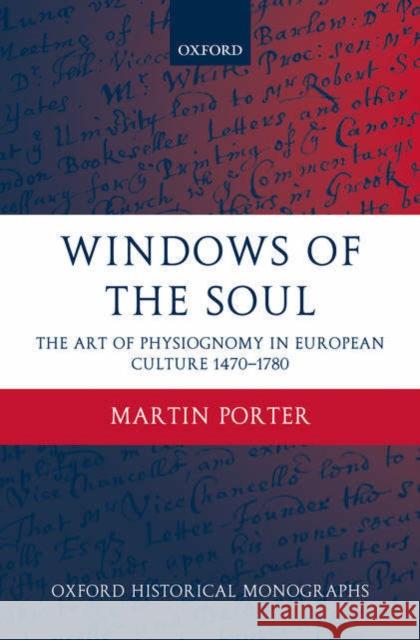Windows of the Soul: Physiognomy in European Culture 1470-1780 » książka
Windows of the Soul: Physiognomy in European Culture 1470-1780
ISBN-13: 9780199276578 / Angielski / Twarda / 2005 / 392 str.
In late fifteenth century Florence, Renaissance humanists rediscovered a secret, natural language hidden in the visual wisdom of the proverb 'the eyes are the windows of the soul'. Through its magical prism, the language of eyes, faces, voices, laughs, walks, even stones, plants and animals, all became windows into the souls of other people, of oneself, of nature, and ultimately of God. Some saw in its words the perfect hieroglyphic language by which Adam had first named nature, which, when combined with the art of memory, could bring about a form of 'inner writing' or mystical self-transformation. Yet many others dismissed it as a collection of arbitrary conventions, superstitious enigmas, or 'gypsy' riddles. Embroiled in the religious persecution of the Reformation, rejected as a science during the Scientific Revolution, in the age of Enlightenment physiognomy came to be seen as nothing more than an amusing entertainment. But with the dawn of Romanticism, be it in the realms of science, religion, or poetry, some began to see that physiognomy was no game and the flame of serious interest in physiognomy was once again rekindled. Combining book history and visual history, Dr Porter reconstructs this physiognomical eye, interprets the way in which books on physiognomy were read and traces the wider intellectual, social, and cultural changes that contributed to the metamorphosis of this way of beholding oneself and the natural world from the Renaissance to the dawn of Romanticism.











